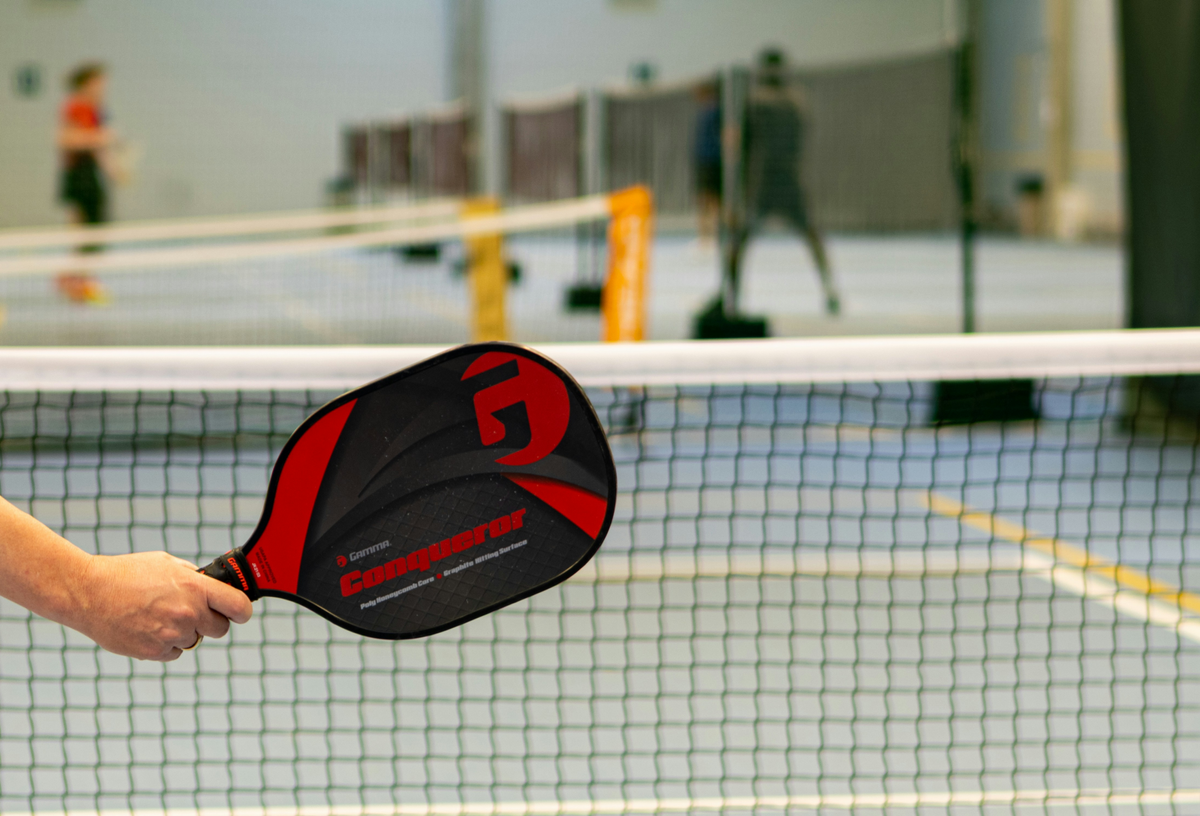When CityPickle was looking for indoor space to build a large pickleball center in Manhattan, its brokers looked at 175 buildings and toured more than 40 spaces. None seemed to fit the bill.
They could go to the boroughs, but that wouldn’t achieve the objective — a place where some of the millions of Manhattan-based employees could go after work to relax and hit a ball around.
“Very, very few of the spaces that we saw could actually work as a pure space fit,” said Patrick Steffens, a senior director in Avison Young’s NYC office who represented CityPickle. “The combination of ceiling heights and column spacing needed to operate first-class pickleball courts is not common in NYC.”

Pickleball operators and Manhattan retail landlords are hoping to capitalize on increasing demand for the sport from young professionals looking for after-work activities.
They eventually landed on a former office of a financial data company that had a large pantry and event space, signing a 37K SF lease this summer at Levin Management Corp.’s 1501 Broadway in Times Square.
CityPickle’s arduous search shows how difficult it is for purveyors of the buzziest sport in America to find their way into one of the most competitive real estate markets in the country: Manhattan retail.
Pickleball, a racquet sport that took off during the pandemic, has been the fastest-growing sport in the U.S. for four consecutive years. Participation is up by 311% since 2022, according to a report from the Sports and Fitness Industry Association.
It is also popular with investors like Marc Lasry, who sold his stake in the Milwaukee Bucks in 2023 and then invested in CityPickle, saying that the sport offered better returns than the NBA. But turning those returns into a reality for New York City landlords is an uphill battle.
Facilities need to span 12K SF at a minimum but would ideally start at around 15K SF, while ceiling heights need to be at least 13 feet, brokers said. Former industrial space in the outer boroughs is a natural fit for those requirements.
CityPickle signed a 10K SF lease in 2023 at a Long Island City industrial building owned by Barone Management for its first NYC location. This summer, Velto Pickleball Club took 14K SF next to a Tesla service center in Red Hook, The Real Deal reported.
But the most demand for space is in the city’s Manhattan core, where options are most limited.
The number of retail availabilities in Manhattan’s prime corridors is down 41% since 2021, and leasing velocity over the past 12 months is at its highest point since the pandemic, according to CBRE.
CBRE data provided to Bisnow found just 57 retail spaces spanning 12K SF or more between 14th and 104th streets that had ceiling heights taller than 13 feet. But many of those spaces wouldn’t work for pickleball because of column spacing, the need for contiguous space and usage restrictions.
Still, landlords are keen to have pickleball operators as tenants, with a 14K SF lease potentially bringing in as much as $7M a year, brokers told Bisnow.
Young workers are increasingly looking to play on their way home from the office, at times that previous generations would have gone to happy hours, said Nick Zilkha, an adviser and part of a Compass retail team. Midtown Manhattan has consequently become a priority for operators looking for indoor venues.
“They all started out looking in Manhattan,” he said. “Most people work in Midtown Manhattan, and they are looking to start a place where people can go after work.”
Manhattan’s price tag and space constraints mean would-be players have few options besides CityPickle. Full-service gyms like Life Time Fitness and Chelsea Piers have added courts to some of their facilities because of demand, and they have grown their footprints in Manhattan in recent years.
Besides those options, there are smaller operators, like Pickle1, which opened in 5K SF of ground-floor space in the Financial District this year, and Hell’s Kitchen Pickleball Club, which opened on the seventh floor of the Glasshouse Building last year.
CityPickle, partly credited for boosting the sport in the city, has operated dozens of seasonal and pop-up courts across the city but struggled to find real estate. Its Times Square location, expected to open this fall, is its first permanent Manhattan outpost and only its second in the five boroughs.
For now, membership gyms appear to be the viable path for pickleball courts to survive paying Manhattan rents, said Robin Abrams, vice chairman at Compass. Many have food and beverage options and host private events to bring in off-court revenue.
“The concept is evolving, as many of the recreational or sports-related concepts have to be more of a hospitality type of concept with an expanded use,” Abrams said. “That’s where the income comes in to support the more expensive location — catering to a much broader customer base, not just the retired person who might be home.”

